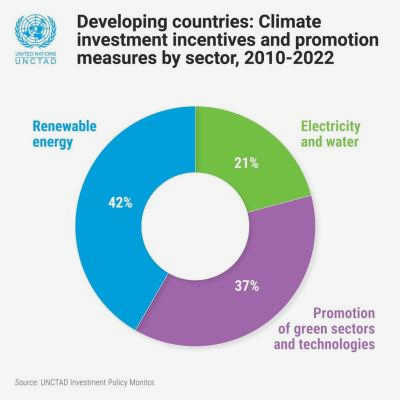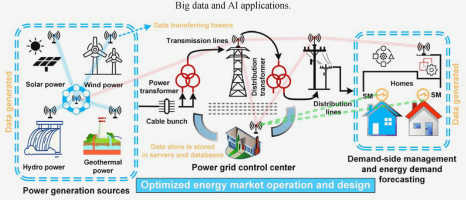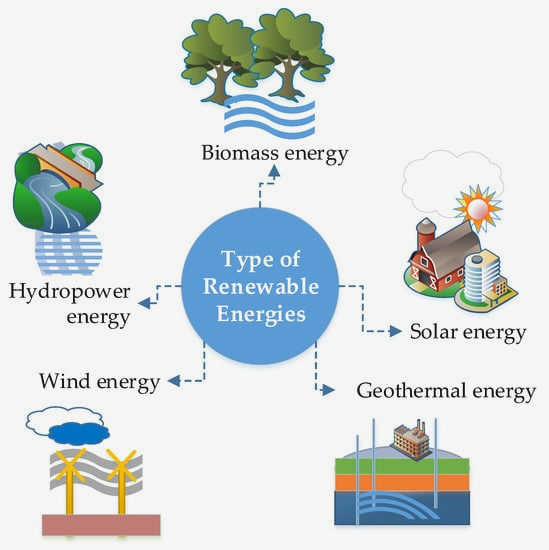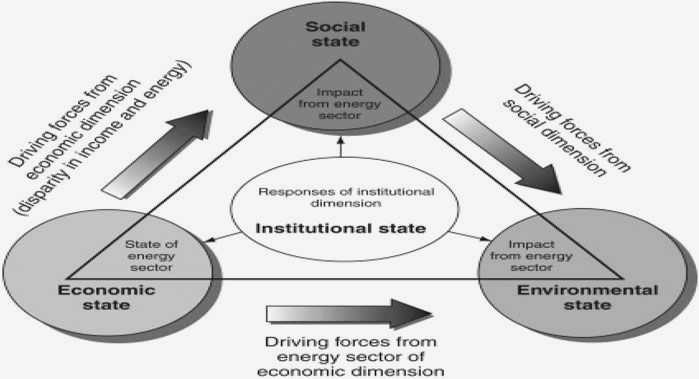Renewable energy is becoming an increasingly important part of the global energy landscape. As countries and companies strive to reduce their carbon emissions and transition to cleaner sources of energy, the role of civil society in driving this change has become more vital than ever.
Civil society organizations, including non-governmental organizations (NGOs), community groups, and grassroots movements, have played a significant role in advocating for renewable energy policies and initiatives. These organizations have been instrumental in raising awareness about the environmental and social benefits of renewable energy and pushing for the adoption of renewable energy targets and regulations on both the local and national levels.
One impactful action that civil society can take is to engage in public advocacy and education campaigns. By organizing events, workshops, and public forums, civil society organizations can educate the general public about the benefits of renewable energy and the importance of transitioning to clean sources of power. These campaigns can also provide a platform for individuals to voice their concerns and ideas, creating a groundswell of support for renewable energy initiatives and pressuring policymakers to take action.
Another important action that civil society can take is to foster collaboration and partnerships between different stakeholders in the renewable energy sector. By bringing together government agencies, private companies, research institutions, and local communities, civil society organizations can facilitate knowledge sharing, innovation, and the development of sustainable solutions. Through these partnerships, civil society can help to bridge the gap between policy and practice, ensuring that renewable energy projects are implemented effectively and in a way that benefits all stakeholders.
In conclusion, civil society plays a crucial role in driving change in the renewable energy sector. Through public advocacy, education campaigns, and fostering collaboration and partnerships, civil society organizations can empower individuals, influence policy, and contribute to the transition to a greener and more sustainable future.
Role of Civil Society in Advancing Renewable Energy
Civil society plays a crucial role in advancing renewable energy by raising awareness, advocating for policy changes, and promoting community engagement. Through their active involvement, civil society organizations contribute to the development and implementation of renewable energy projects, ensuring their environmental and social sustainability.
1. Raising Awareness
Civil society organizations are instrumental in raising awareness about the benefits of renewable energy. They educate the public on the environmental, economic, and social advantages of transitioning to renewable sources such as solar, wind, and geothermal power. By organizing workshops, campaigns, and public events, these organizations empower individuals and communities to make informed choices and support the adoption of renewable energy.
2. Advocacy for Policy Changes
Civil society organizations actively engage in advocacy efforts to promote policy changes that support renewable energy development. They work to influence governments and policymakers to create and implement favorable regulations, incentives, and financing mechanisms for renewable energy projects. By conducting research, providing expertise, and collaborating with other stakeholders, civil society organizations contribute to the formulation of effective energy policies that prioritize the expansion of renewable energy sources.
3. Promoting Community Engagement
Civil society organizations foster community engagement in renewable energy initiatives, ensuring that local perspectives and concerns are taken into account. They facilitate dialogue between project developers, communities, and other stakeholders to promote transparency, participation, and shared decision-making. By involving communities in the planning, implementation, and management of renewable energy projects, civil society organizations contribute to the development of sustainable and socially inclusive energy solutions.
In summary, civil society plays a vital role in advancing renewable energy by raising awareness, advocating for policy changes, and promoting community engagement. Their efforts contribute to the overall development and success of renewable energy projects, making a significant impact on the transition to a more sustainable and clean energy future.
Mobilizing Communities for Renewable Energy Transition
Transitioning to renewable energy sources is a collective effort that requires the active involvement and support of communities. Mobilizing communities for the renewable energy transition is essential to drive change and accelerate the adoption of clean energy solutions.
Community education and awareness: One of the key steps towards mobilizing communities is educating them about the benefits of renewable energy and the impact of fossil fuels on the environment. This can be done through workshops, presentations, and awareness campaigns that highlight the advantages of clean energy sources and their role in mitigating climate change.
Local ownership and participation: Encouraging local ownership and participation in renewable energy projects can foster a sense of ownership and responsibility within the community. This can be achieved through community-owned solar or wind projects, where residents invest in and benefit from the renewable energy generation.
Policy advocacy: Civil society organizations can play a crucial role in advocating for policies that support and incentivize the adoption of renewable energy. By engaging with policymakers, organizing petitions, and participating in public consultations, communities can ensure that their voices are heard and that policies are aligned with their renewable energy goals.
Collaboration and partnerships: Collaborating with other organizations, businesses, and government agencies is essential to mobilize communities effectively. Partnerships can facilitate knowledge sharing, resource pooling, and joint advocacy efforts, leading to a stronger and more impactful transition towards renewable energy.
Economic benefits for communities: Highlighting the economic benefits of renewable energy can be a powerful motivator for community mobilization. For example, showcasing the job creation potential of the renewable energy sector can attract support from local communities, as it offers new employment opportunities and stimulates economic growth.
In conclusion, mobilizing communities for the renewable energy transition requires a multi-faceted approach that focuses on education, participation, advocacy, collaboration, and economic benefits. By empowering communities and engaging them in the renewable energy transition, civil society can drive change and accelerate the shift towards clean and sustainable energy sources.
Advocacy for Renewable Energy Policies and Incentives
Educating policymakers
Advocacy for renewable energy policies and incentives begins with education. Civil society organizations can play a crucial role in educating policymakers about the benefits of renewable energy and the need for supportive policies and incentives. This can include providing policymakers with research and data on the economic, environmental, and social advantages of renewable energy, as well as organizing workshops and conferences to facilitate knowledge sharing and dialogue.
Building coalitions and alliances
By building coalitions and alliances with other stakeholders, civil society organizations can amplify their voices and strengthen their advocacy efforts. This can involve partnering with renewable energy companies, environmental NGOs, and community groups to collectively advocate for renewable energy policies and incentives. Collaboration can help pool resources, share expertise, and enhance the overall impact of advocacy campaigns.
Engaging the public
Public support is crucial in driving change in the renewable energy sector. Civil society organizations can engage the public through various means, including awareness campaigns, social media outreach, and grassroots organizing. By raising awareness about the importance of renewable energy and mobilizing public support, civil society can create a groundswell of demand for renewable energy policies and incentives.
Policy research and recommendations
Civil society organizations can conduct policy research to identify gaps in existing renewable energy policies and propose recommendations for improvement. This can involve analyzing the effectiveness of current policies, studying best practices from other countries or regions, and providing evidence-based recommendations to policymakers. By offering well-researched insights and practical suggestions, civil society can help shape more effective renewable energy policies and incentives.
Monitoring and accountability
Civil society organizations can play a vital role in monitoring the implementation of renewable energy policies and holding policymakers accountable. Through independent monitoring, reporting, and advocacy, civil society can ensure that promised policies and incentives are being effectively implemented and that any barriers or challenges are addressed. By shining a light on successes and shortcomings, civil society can help drive continuous improvement in the renewable energy sector.
Raising Awareness about the Benefits of Renewable Energy
Raising awareness about the benefits of renewable energy is an essential step in driving change in the renewable energy sector. It is important to educate the public about the positive impact that renewable energy sources can have on the environment and our daily lives.
1. Educating the public: Civil society can play a crucial role in educating the public about the benefits of renewable energy. This can be done through various means such as organizing workshops, seminars, and public talks. These events can provide information about the different types of renewable energy sources, their advantages over fossil fuels, and their potential to reduce greenhouse gas emissions.
2. Promoting the economic benefits: Another way to raise awareness about renewable energy is by highlighting its economic benefits. Civil society can emphasize the potential for job creation and local economic development in the renewable energy sector. By showcasing success stories and case studies, they can demonstrate how investing in renewable energy can lead to a more sustainable and prosperous future.
3. Showcasing real-world examples: Civil society can also play a role in showcasing real-world examples of successful renewable energy projects. This can be done through site visits, documentaries, or online platforms. By highlighting the tangible benefits of renewable energy in action, civil society can inspire others to adopt similar solutions in their own communities.

4. Collaborating with media outlets: Civil society organizations can collaborate with media outlets to raise awareness about the benefits of renewable energy. This can be done through interviews, articles, or opinion pieces that reach a wide audience. By leveraging the power of the media, civil society can amplify their message and reach more people with information about renewable energy.
5. Engaging with policymakers: Lastly, civil society can engage with policymakers to advocate for policies and regulations that support renewable energy adoption. By actively participating in policy dialogues and providing expert input, civil society can help shape the regulatory framework and create an enabling environment for renewable energy growth.

Encouraging Collaboration between Civil Society and Renewable Energy Industry
Collaboration between civil society and the renewable energy industry is crucial in driving change and achieving sustainable development goals. By working together, these two sectors can combine their knowledge, resources, and expertise to create innovative solutions and accelerate the transition to clean energy.
To encourage collaboration, it is essential to establish open channels of communication and foster a culture of cooperation. This can be achieved through regular dialogue and forums where representatives from both sectors can exchange ideas, share best practices, and identify areas for collaboration. Building strong relationships and trust between civil society organizations and renewable energy industry stakeholders is the foundation for successful collaboration.
Educational initiatives can play a significant role in encouraging collaboration between civil society and the renewable energy industry. By organizing workshops, trainings, and educational campaigns, both sectors can enhance their understanding of each other’s work and develop a common language to address common challenges. These initiatives can also empower civil society organizations with the necessary knowledge and skills to actively engage in renewable energy projects and advocate for policy changes.
Transparency and accountability are key principles that should guide collaboration between civil society and the renewable energy industry. Establishing clear guidelines and frameworks for collaboration, including mechanisms for monitoring and evaluation, can ensure that the interests of all stakeholders are respected and that the outcomes of collaboration are aligned with the principles of sustainable development.
Policy advocacy is another important avenue for collaboration between civil society and the renewable energy industry. With their expertise and grassroots networks, civil society organizations can advocate for favorable policies and regulations that support the growth of renewable energy. By working together, these two sectors can influence policy decisions, increase public awareness, and create an enabling environment for renewable energy investments and projects.
Overall, encouraging collaboration between civil society and the renewable energy industry is essential for driving change and achieving a sustainable energy future. By combining their efforts, knowledge, and resources, these two sectors can create a powerful force for positive change and contribute to the global transition to clean and renewable energy sources.
Promoting Community-Owned Renewable Energy Projects
The promotion of community-owned renewable energy projects is a crucial step towards achieving a sustainable and decentralized energy system. These projects empower local communities by allowing them to actively participate in the production and consumption of renewable energy, ensuring economic, social, and environmental benefits.
Engaging the local community: Community-owned renewable energy projects involve the active involvement of local residents, businesses, and stakeholders right from the beginning. This engagement can take various forms, such as public consultations, informative meetings, and community workshops, where the benefits and potential of renewable energy are discussed. By creating an inclusive and participatory environment, these projects help build trust and foster support within the community.
Investment and ownership: One key aspect of community-owned renewable energy projects is the participation of community members as investors and owners. This model allows individuals to take an active role in shaping their energy future while also providing them with potential financial returns. By pooling resources and sharing risks, communities can collectively invest in renewable energy projects, making them more affordable and accessible to all.
Job creation and local economy: Community-owned renewable energy projects have the potential to stimulate local economies by creating jobs and promoting local businesses. These projects often require skilled labor for installation, maintenance, and operation, providing employment opportunities within the community. Additionally, the revenue generated from these projects stays within the local economy, strengthening local businesses and contributing to overall economic growth.
Environmental impact: By promoting community-owned renewable energy projects, civil society can drive significant environmental impact. These projects contribute to reducing greenhouse gas emissions, improving air quality, and mitigating climate change. Additionally, the decentralized nature of community-owned projects reduces transmission losses and increases the overall efficiency of the energy system.
Building knowledge and awareness: Alongside the implementation of community-owned renewable energy projects, civil society can play a crucial role in educating and raising awareness about the benefits of renewable energy. This can be done through public campaigns, educational programs, and information sharing platforms. By building knowledge and awareness, civil society can empower individuals and communities to make informed choices and actively participate in the transition to a renewable energy future.
Supporting Access to Renewable Energy for Marginalized Communities
Access to renewable energy is crucial for sustainable development and poverty alleviation. However, marginalized communities often face significant challenges in accessing clean and affordable energy sources. Civil society organizations play a crucial role in supporting these communities and ensuring their access to renewable energy.
Advocacy and Policy Influence
One impactful action that civil society organizations can take is advocating for policies that promote renewable energy access for marginalized communities. They can work with local, regional, and national governments to develop and implement supportive policies, such as feed-in tariffs or subsidies, that make renewable energy more affordable and accessible for these communities. Through their advocacy efforts, civil society organizations can also raise awareness about the benefits of renewable energy and its potential to address energy poverty and reduce environmental impacts.
Capacity-building and Training
In addition to policy advocacy, civil society organizations can provide capacity-building and training programs to empower marginalized communities to adopt and utilize renewable energy technologies. These programs can focus on educating communities about the benefits of renewable energy, providing technical skills training for the installation and maintenance of renewable energy systems, and promoting entrepreneurship in the renewable energy sector. By building the capacity of marginalized communities, civil society organizations can help them overcome barriers and take ownership of their energy transition.
Partnerships and Collaboration
Civil society organizations can also play a critical role in fostering partnerships and collaboration between various stakeholders, including governments, private sector entities, and community-based organizations. By bringing together these different actors, civil society organizations can facilitate the exchange of knowledge, resources, and best practices, ultimately supporting the development and implementation of renewable energy projects in marginalized communities. This collaborative approach can help overcome financing challenges, promote local ownership, and ensure that projects are tailored to the specific needs and context of each community.
In conclusion, supporting access to renewable energy for marginalized communities requires a multi-faceted approach that includes advocacy, capacity-building, and collaboration. Civil society organizations have a unique opportunity to drive change in the renewable energy sector by advocating for supportive policies, empowering communities through training, and facilitating partnerships. Through these efforts, they can contribute to inclusive and sustainable development, while ensuring that no one is left behind in the transition to renewable energy.
Monitoring and Reporting on Environmental Impacts of Renewable Energy
In order to ensure the sustainable development of the renewable energy sector, it is crucial to implement effective monitoring and reporting mechanisms to assess its environmental impacts. Monitoring and reporting provide valuable insights into the overall performance of renewable energy projects and help identify potential areas for improvement.
1. Environmental Impact Assessments
One of the key tools for monitoring the environmental impacts of renewable energy projects is conducting comprehensive environmental impact assessments (EIAs). EIAs involve the systematic evaluation of potential environmental effects, such as changes in ecosystems, air and water quality, and wildlife habitats, that may result from the installation and operation of renewable energy facilities. These assessments provide valuable information for decision-making processes and help ensure that renewable energy projects are developed in an environmentally responsible manner.
2. Reporting Frameworks
Establishing reporting frameworks is essential to track and document the environmental performance of renewable energy projects. These frameworks should include standardized metrics and indicators that allow for the consistent measurement and comparison of environmental impacts across different projects. Regular reporting on key environmental performance indicators, such as greenhouse gas emissions, water usage, and land disturbance, can help identify trends, assess the effectiveness of mitigation measures, and inform policy and investment decisions.
3. Stakeholder Engagement
Effective monitoring and reporting on the environmental impacts of renewable energy require meaningful engagement with stakeholders. Engaging local communities, environmental organizations, and other relevant actors can provide valuable insights and perspectives that inform decision-making processes. Involving stakeholders in monitoring activities, such as citizen science initiatives or public consultations, can help enhance transparency, accountability, and trust in the renewable energy sector.
4. International Cooperation
Given the global nature of environmental issues, international cooperation is essential in monitoring and reporting on the environmental impacts of renewable energy. Sharing best practices, exchanging data, and harmonizing monitoring and reporting standards across countries can improve the understanding of global environmental impacts and contribute to the development of more sustainable renewable energy policies and practices.
In conclusion, effective monitoring and reporting on the environmental impacts of renewable energy are vital for ensuring its sustainable development. By implementing comprehensive environmental impact assessments, establishing reporting frameworks, engaging stakeholders, and promoting international cooperation, we can drive positive change in the renewable energy sector and minimize its adverse environmental effects.

Promoting Education and Training in Renewable Energy Sector
1. Establishing specialized educational programs: One impactful action that civil society can undertake to promote education and training in the renewable energy sector is to establish specialized educational programs. These programs could be developed in collaboration with universities, technical colleges, and vocational training centers to provide comprehensive and practical training in renewable energy technologies, energy efficiency, and sustainable practices. By offering specialized education, individuals will be equipped with the knowledge and skills necessary to contribute effectively to the renewable energy sector.
2. Providing scholarships and grants: Civil society organizations can play a crucial role in promoting education and training in the renewable energy sector by providing scholarships and grants to individuals interested in pursuing education in this field. By offering financial support, these organizations can encourage more students to enter the renewable energy sector and access quality education and training. Scholarships and grants can be targeted towards disadvantaged communities and underrepresented groups, ensuring equal opportunities for all.
3. Partnering with industry leaders and professionals: Collaborating with industry leaders and professionals is another impactful action that civil society can take to promote education and training in the renewable energy sector. By establishing partnerships, civil society organizations can facilitate internships, apprenticeships, and mentorship programs that provide hands-on experience and opportunities for learning from experts in the field. These partnerships can also help in designing curriculum and training materials that are up-to-date with the latest developments in the renewable energy sector.
4. Organizing workshops and seminars: To raise awareness and promote education in the renewable energy sector, civil society organizations can organize workshops and seminars. These events can bring together industry professionals, educators, and students to discuss and exchange knowledge on renewable energy technologies, policies, and best practices. Workshops and seminars can also provide a platform for networking and collaboration, creating opportunities for individuals to learn from each other and form partnerships for future projects and initiatives.
5. Advocating for government support: Civil society can drive change in the renewable energy sector by advocating for government support and policies that promote education and training. By raising awareness about the importance of renewable energy and its potential benefits, civil society organizations can influence policymakers to allocate resources towards education and training programs. This advocacy can help in creating a conducive environment for individuals interested in pursuing careers in the renewable energy sector and ensure continuous growth and innovation in the industry.
Influencing Consumer Choices towards Renewable Energy
One impactful action that civil society can take to drive change in the renewable energy sector is to influence consumer choices towards renewable energy sources. Consumer behavior plays a crucial role in shaping the demand for renewable energy and driving the transition towards a more sustainable energy system.
Raising Awareness and Education:
Civil society organizations can play a pivotal role in raising awareness about the benefits of renewable energy among consumers. This can be achieved through various means, such as educational campaigns, workshops, and online resources. By providing accurate and accessible information, civil society organizations can empower consumers to make informed decisions and understand the environmental, social, and economic advantages of renewable energy sources.
Advocacy and Policy Support:
Civil society organizations can also work towards influencing policies that promote renewable energy adoption. They can advocate for the implementation of feed-in tariffs, tax incentives, and other supportive measures that make renewable energy more financially viable for consumers. By actively engaging with policymakers and providing recommendations based on their expertise, civil society can contribute to creating an enabling environment for consumers to choose renewable energy.
Showcasing Success Stories:
Another effective strategy for influencing consumer choices is by showcasing success stories and real-life examples of individuals, organizations, and communities that have successfully transitioned to renewable energy sources. By sharing these stories through various channels, such as social media, websites, and community events, civil society can inspire and motivate other consumers to follow suit. These success stories can demonstrate the feasibility and positive outcomes of embracing renewable energy, which can overcome skepticism and encourage more people to adopt renewable energy solutions.
Collaboration and Partnerships:
Civil society organizations can also collaborate with businesses, local governments, and other stakeholders to collectively promote renewable energy options to consumers. By working together, these entities can combine resources, expertise, and networks to develop joint marketing campaigns, incentive programs, and community projects that encourage consumers to choose renewable energy. Collaboration fosters a more comprehensive and coordinated approach in influencing consumer choices and creates a stronger collective impact on the renewable energy sector.
In summary, civil society has a critical role in influencing consumer choices and driving change in the renewable energy sector. By raising awareness, advocating for supportive policies, showcasing success stories, and fostering collaboration, civil society can empower consumers to make sustainable choices and accelerate the transition towards a cleaner and more sustainable energy future.






